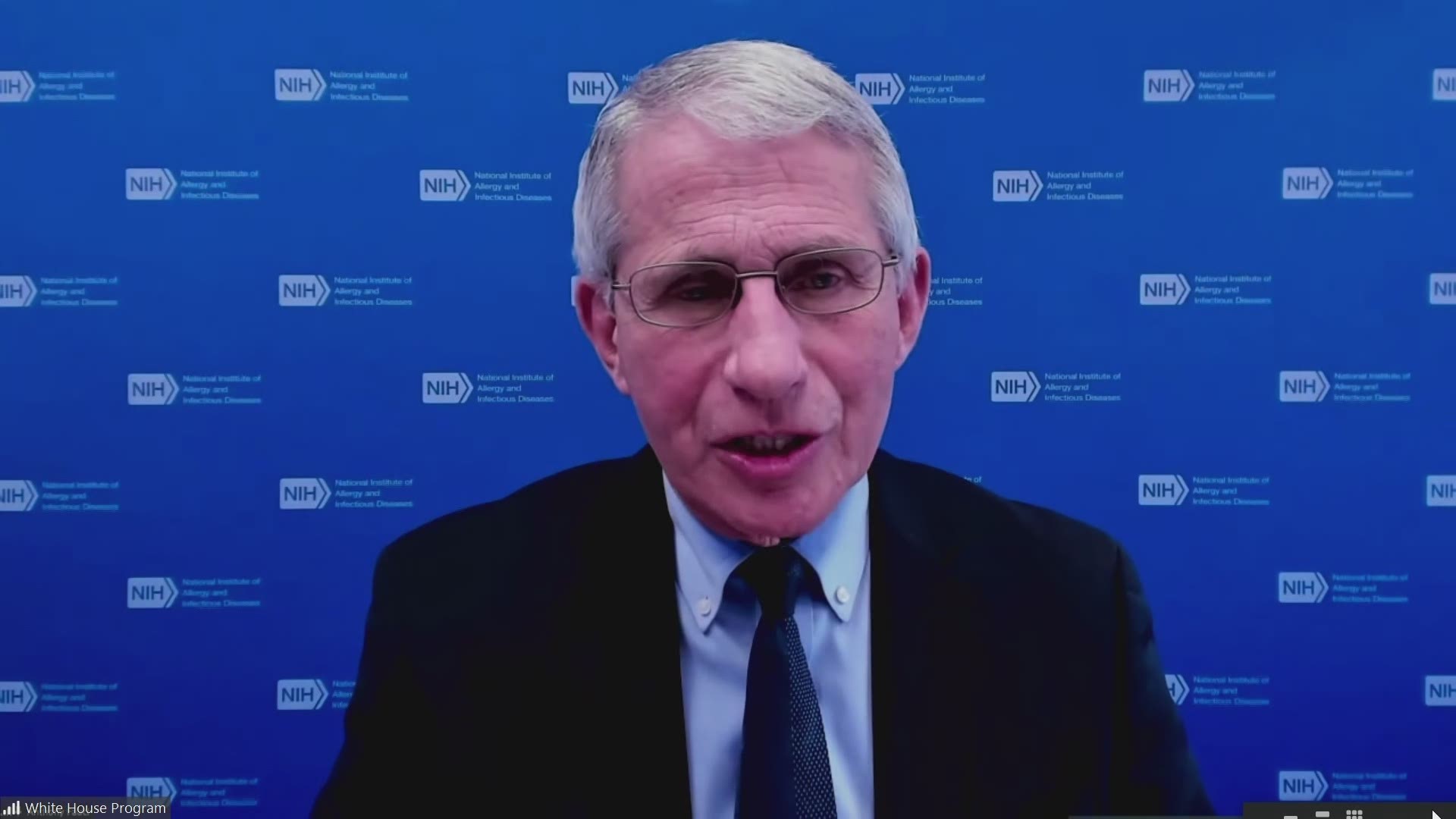Dr. Anthony Fauci again cautioned the public about a new coronavirus variant that has been seen in the New York City area, and is "spreading pretty efficiently," the nation's top infectious disease expert said.
On a conference call with reporters Sunday, New York's Governor Andrew Cuomo praised the state's vaccine roll out so far, even mentioning success where the state has tried out 24/7 vaccine sites. But, as New York decides to loosen restrictions on certain mitigation behaviors to curb the spread of the coronavirus, this new variant could prove to be a challenge.
As the Associated Press reported on Friday, Gov. Andrew Cuomo announced Wednesday that New York had decided to let up on restrictions regarding private gatherings, making way for some public performances which had been banned for almost a year, with authorities citing concerns over the coronavirus pandemic. Gov. Cuomo wasn't heard emphasizing the recently discovered virus variant on his Sunday call with reporters.
This came after reports that the Biden administration was taking the newly discovered COVID-19 variant in the New York City metropolitan area "very seriously," according to Dr. Fauci earlier this month. According to a CNBC report, Fauci said experts had found that the new virus strain most likely originated in the city's Washington Height's neighborhood, which is in the upper end of Manhattan.
Fauci confirmed that the variant has spread to other boroughs in the city, but said Sunday on CBS that it isn't "widespread yet." He did confirm on CBS's "Face The Nation" that the variant is showing a resistance to antibody treatments and vaccines.
As the New York Times reported, researchers are calling the new strain B.1.526, and say its spread through New York City has been rapid. Experts say the mutation it carries has the possibility of weakening the effectiveness of vaccines.
Michel Nussenzweig, an immunologist at Rockefeller University said it was not “particularly happy news,” but reassured the public saying that knowing about the variant means that experts and researchers now have the chance to do something about it.

